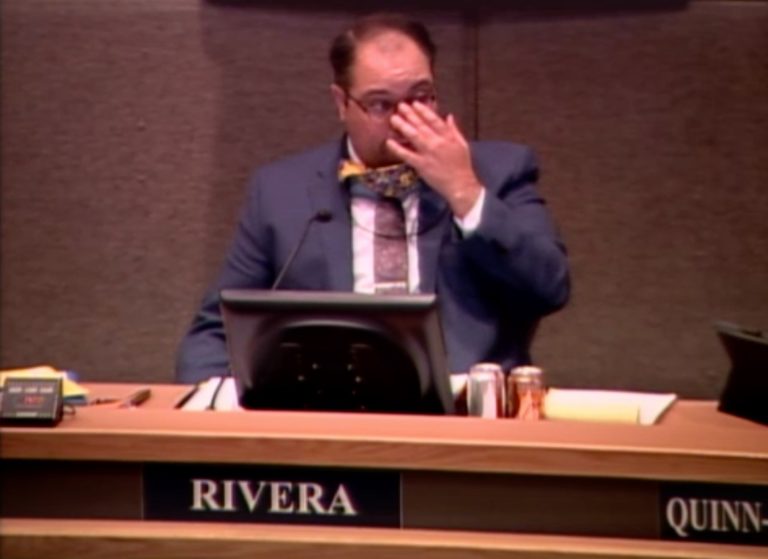By REP. DAVID EASTMAN
Author’s Note: By now you probably heard that I was condemned by the Alaska House last week for asking a question in a committee. This is part one in a two-part series. In part one below, I highlight how the science of prenatal testing is being used to target the most vulnerable members of our society. In part two, I will unpack the profoundly disturbing presentation on prenatal testing we received in committee last week and the question I asked at the end of it. It’s a story the Left is hoping you never hear, and an unedited video of the conversation they hope you never watch.
I can’t remember exactly how far into my 10 years in the military I first noticed. It was definitely not in my first year. I just remember looking around one day and thinking how rare it was to ever see someone who was overweight. It’s not that the military hates the obese, but those who are so usually get sifted out.
As a freshman at West Point, I remember meeting a senior who was being sent home. He was a good student, but try as he might the size of his neck just didn’t match his height according to the Army, so they sent him home. It wasn’t personal. It just worked out that everyone else received a commission, and he didn’t.
At the height of the Covid pandemic, The Atlantic published a story on prenatal testing (“The Last Children of Down Syndrome: Prenatal testing is changing who gets born and who doesn’t. This is just the beginning.“). It is well worth the read. Caution: If you happen to know someone with Down syndrome, it may bring tears.
The story highlights the impact of prenatal testing, with a focus on Denmark. Denmark’s genetic program got started with the goal of “improving the health of a nation by preventing the birth of those deemed to be burdens on society.”
Yes, it was a eugenics program. Denmark began prenatal testing for Down Syndrome in the 1970s. At the time, “it was discussed in the context of saving money—as in, the testing cost was less than that of institutionalizing a child with a disability for life.”
Since then, the marketing has changed. The program now claims “to offer women a choice.” Denmark was the first country to make free prenatal testing for Down syndrome available universally. When it did, the number of Down Syndrome live births crashed. Today, 98% of children thought to have Down syndrome are aborted in Denmark. In Iceland, that number approaches 100%, with only one or two children born with Down syndrome each year.
Down syndrome isn’t a fatal diagnosis. At least, until the advent of prenatal testing, it didn’t used to be. The average life expectancy of a person with Down syndrome (if their life is not cut short in the womb) is 60 years and climbing.
But that is only if they can make it to the outside world. In America, more than two-thirds of those who test positive for Down syndrome in the womb are aborted. Notice, I said “test positive.” I did not say those who actually have Down syndrome.
Most initial prenatal tests simply provide a statistical likelihood that a child will have Down syndrome. Sometimes healthy children are aborted out of fear of Down syndrome, and sometimes children that pass the test turn out to have it.
It is not that a particular test was accurate and the child later developed Down syndrome. As a genetic condition, a child either has Down syndrome from the moment of conception, or he or she does not. There isn’t anything a mother can do during pregnancy to increase or decrease the risk of her child having Down syndrome. In fact, other than the fact that a child with an older mother is at greater risk, Down syndrome is essentially random in a population, which is why the widespread disappearance of Down syndrome children is never an accident.
Some might be tempted to see the disappearance of Down syndrome in society as progress toward a better, healthier society. But we are not curing or reducing the number of people who develop Down syndrome. They are simply being sifted out, not unlike the way the military excludes the obese.
The unpleasant truth is that it is a great deal easier to be an inclusive society when you have first excluded many of those whom it might be difficult to include.
To be disabled, to have Down syndrome (or any disability), you must first, in fact, be alive. You must first have a future before you (or society) can be ”saved” from that future. You must first have a life before that life can be cut short.
In American society, the decision of whether that life will be cut short is often said to be a “choice” a mother must make. Alternately, the U.S. Supreme Court recently declared it a political question to be decided by state legislators. In fact, it is neither.
I think of each of the people I have known with Down syndrome. One trait that each of them seem to share is a complete and utter absence of guile. They don’t begin by wanting to know how much money you make or the type of clothes you wear. I think Carter Snead summed it up best in saying, when they meet you for the first time what they want to know is “can you love?”
We are told that the world somehow receives a benefit from Down syndrome testing and the resulting disappearance of so many Down syndrome children from society, but I can only see the loss.
To reduce someone to a single aspect of their life based on such a test, and to then judge the worthiness of their life based on that alone, surely reflects our incredible capacity as human beings to be so profoundly inhumane to one another.
Prior to the repeal of Roe v. Wade, Missouri responded to the targeting of Down syndrome children by passing a law that prohibits aborting a child due to Down syndrome. In passing that law, Missouri had to overcome the strenuous public opposition of Planned Parenthood. Likewise, Planned Parenthood has publicly condemned similar laws passed in Ohio, Nebraska and Indiana.
The use of prenatal testing to remove unborn children from society has been especially tragic for girls. Girls with Down syndrome have, not one, but two strikes against them simply for the fact that they are girls. Today, the number of boys with Down syndrome outnumber girls to a greater degree than men outnumbered women in China at the height of China’s one-child policy. (see Newsweek: Sex Selection Abortions Are Rife in the U.S.”)
Eleven states, and several countries, have made it illegal to abort a child due to the child’s sex. Countries like South Korea have even gone so far as to make it illegal for doctors to share prenatal testing results with parents, in order to to prevent parents from using that information to abort the child.
In Alaska, it is completely legal to abort a child because she is a girl.
It is completely legal to abort a child because she has Down syndrome.
In fact, it is completely legal to abort a child because she is too short, has brown eyes, or for any other reason, up to the very moment of birth.
This is the reality that anyone who would advocate for the lives of children in Alaska must face today. And this is the legal landscape in which the Alaska Children’s Trust came before the House Judiciary Committee last week and shared a truly disturbing vision for the future of prenatal testing in Alaska.
Instead of “prenatal” they prefer the term “preborn,” and instead of “testing” they prefer the word “scoring,” but the plan to predict a child’s success in adulthood from even before they take their first breath on this earth remains fully intact.
In part two of this series I will unpack their presentation and the question and answer session that followed.
Rep. David Eastman serves in the Alaska Legislature, representing Wasilla.









